Up until 10 years ago, kids in India would wear whatever their caregivers decided was right for them. They were dressed in hand-me-downs, sensible jeans, warm sweaters and comfortable jackets. But gone are those days.
Ten years down the line – today – kids wear has gone from comfort dressing to being fashion-forward. Parents are splurging thousands of rupees on the latest fashion for kids, then be they toddlers or tweens.
The kids fashion segment in India has captured 20 per cent of the total apparel market in the country. In 2014, the value of this industry was Rs 50,120 crore and this figure is expected to go up to Rs 1,38,540 crore by 2024 at a growth rate of 10.7 per cent per annum.
Till recently, despite the jump in numbers and the huge potential, brands were skeptical about entering this category, tip-toeing around it. Bad decisions by earlier brands, and failure to tap into and overcome the challenges of the segment further slowed the growth rate of the kids’ fashion industry in India in the past.
However, the advent and immense success of e-commerce in India changed all that. It gave kids’ fashion a much-needed boost, unveiling the true potential of the segment to the fashion retail industry.
Challenges & Benefits
Though India is a promising market for both retailers and brands, the country has its own unique characteristics that the kids fashion industry needs to grapple with.
For example, the socio-economic disparity across India plays a crucial role in the demand for kids’ fashion products and accessories, which require a completely different manufacturing and distribution strategy.
There is also lower penetration of the Internet and smartphones, as compared to other countries, leading to a slower rate of growth online.
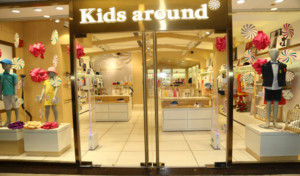 On the bright side, India is one of the highest populated countries with a steady increase in per capita income as well as childbirth – all factors which have led to the kids’ apparel market growing faster than in any other country, including in China. Also, since children outgrow clothes very fast, the demand for kids’ clothing is barely affected by financial fluctuation, thus decreasing the risk factor for brand and retailers.
On the bright side, India is one of the highest populated countries with a steady increase in per capita income as well as childbirth – all factors which have led to the kids’ apparel market growing faster than in any other country, including in China. Also, since children outgrow clothes very fast, the demand for kids’ clothing is barely affected by financial fluctuation, thus decreasing the risk factor for brand and retailers.
“With economic growth and birth rates slowing in western markets, many global brands are exploring growth opportunities in emerging markets. India is being seen as a high-potential market. The fact that India is one of the youngest nations in the world – 29 per cent of its 1.2 billion population is under 14 years, according to the World Bank – makes it an attractive market for kids’ brands,” says Director and CEO of Kids Around, Sakshi Arora. Kids Around is a kids store that brings together brands.
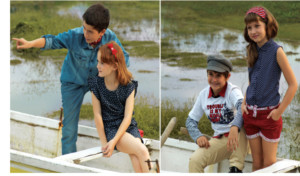
The Lucrative Indian Market
Irrespective of the challenges, international brands and retailers as well as homegrown brands are more than willing to explore this market segment. In fact, brands such as Poney India, Hugo Boss, Junior Armani, H&M Kids, GAP Kids, Babyoye, Nauti Nati, 612 League, and Gini & Jony are ensuring that kids – and their parents – have ample variety through their exclusive stores as well as their vast online presence.
A number of brands and retail stores that specialise in manufacturing and selling of children’s fashion have started foraying into this category. The Indian e-commerce space is flooded with kidswear, with brands and retailers using the online space to experiment with their products and offerings.
Says Poney India Brand Head, Rajat Kapoor, “People have started focusing on kidswear as a lucrative category amongst the mainstream retail industry. The buyers’ aspirations have gone up, along with their spending capacity.”
There is a high demand for ethnic attire in India, with domestic brands – Fabindia, Kilkari and Biba to name a few – coming up with entire traditional Indian collections for children.
Apart from this, retailers are stretching real estate inside existing stores to accommodate a kids’ section, as well as creating standalone shops exclusively for children’s clothing.
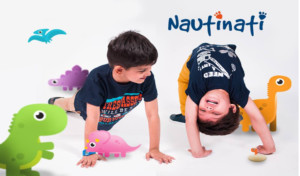
Battleground Tier II & III Cities
While this is the scenario for Tier I cities in India, the dynamics are completely different in Tier II and Tier III cities, which are a crucial battleground for kids’ brands.
According to MD & CEO Toonz Retail, Sharad Venkta, “The kidswear market is highly fragmented and facing a lot of challenges due to poor brand recalls, high rent costs and continued competition from neighbourhood shops. The kids’ retail industry is complex in nature. When it comes to cost structure, the margin model is always under pressure.”
“Home-grown children’s wear brands are banking on their expertise in production, sourcing and design. We just need to cater the right set of people and hit the right market by venturing into Tier II cities apart from the metros,” he adds.
Brand Strategies
Creating a kids’ fashion brand is a challenge in itself as the success in this market depends on a number of factors apart from the competition, innovation, and distribution. There are certain core competencies required for every brand to survive in this segment of the garment industry.
Sakshi of Kids Around says, “Great ideas, a hardworking team, and patience – these are three things to build any brand. Kids around is a real alternative to multi-brand boutiques and provide a unique shopping experience for parents and children.”
MUST READ: Will Indian kidswear market grow out of its infancy stage?
Chief Brand Manager of Scullers, Sujatha Nandan, adds, “The key competencies required to build a kid-centric brand are: affiliation to parent brand, retaining the essence of the parent brand, making the styles sensitive to the age group and factoring in the changing sizes. All of these are important since the TG of this segment grows very quickly.”
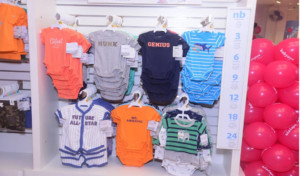
Differentiating Factors
Sujatha says there are two major factors which influence kids fashion in India – emulation of the parent brand and influence of the tween attitude among the peer group.
Sizing is another specification that plays a major role in the success in kids’ fashion industry. For example, Kids Around is dedicated to children between 0 to 16 years.
Sujatha gives an insight into this saying, “When the complete size range is covered, then there is a commercial advantage for the brand, but in kidswear there is no conjunction of sizes. Moreover, addressing a range of sizes through jumping sizes reduces the stock keeping unit for the brand.”
MUST READ: Flipkart to showcase kidswear range by designer Masaba Gupta
Comfort and quality of the fabric and clothes in this segment also differentiates kids fashion from adult fashion.
Sakshi Arora says, “Parents are very cautious while buying clothes for their kids. The first thing they check is the fabric of the brand. At Kids Around, the collection is absolutely comfortable, safe and skin-friendly for kids.”
Adds Sujatha, “Organic products and skin-friendly fabrics are predominantly compulsory in infant wear range. In the kids and tween segment, we can experiment with more fabrics, but comfort is important.”
Fashion for Fans
The apparel industry in India is also seeing the emerging of popular theme-based franchise fashion. Merchandise related to popular franchises such as Marvel, DC, Disney, Game of Thrones, Harry Potter and Frozen are extremely sought after.
Sujatha of Scullers says, “Cartoon characters, sports and young stars do play an important role in influencing the buying decision of kids. This collection is found in brands that cater to a generic product profile but not in Scullers Kids. Our brand works on a particular theme for the season for the entire family. The theme follows the DNA of the brand.”
ALSO READ: No kidding: Kids wear market share to hit Rs 1.3 lakh crore
However, Sakshi disagrees, saying, “Kids are extensions of their parents. If their father / mother is wearing, say a Hugo Boss T-shirt or a Versace Shirt, they want to do the same and that’s what we provide them with. We don’t have any cartoon or sports star t-shirts.”
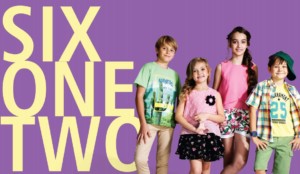
Fashion Conscious
According to a March 2016 category briefing by Euromonitor International, spends on branded childrenwear products are on the rise in urban centres in India with kidswear expected to reach sales of Rs 1.6 trillion by 2020.
For Indian parents, shopping for great clothes for their children has moved back home to India from shopping during international trips.
With international kidswear brands setting up shop in India, and Indian retailers enhancing their designs and collections to meet the growing expectations of their primary consumers – well-to-do middle class parents – children are finally getting their own as far as fashion is concerned.
Retailers – both Indian and international – are stretching real estate inside existing stores to accommodate a kids’ section, as well as creating standalone shops exclusively for children’s clothing
Must Read




